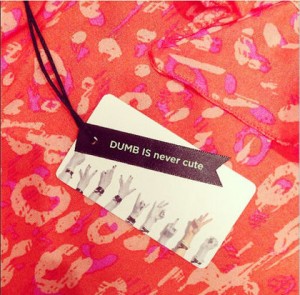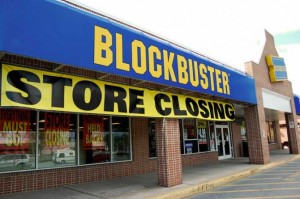Another company criticized for discrimination and unacceptance is nothing new. Bullying and speaking ill of the disabled have become a prevalent topic within our society. Companies are obliged to take this in
to consideration when marketing and branding.
Vancouver-born business Aritzia was criticized this summer for being inconsiderate to those with disabilities. The summer-slogan “DUMB IS never cute”, for the Talula, line were printed on ribbon which was then attached to tags with hands forming sign language letters. Customers were immediately appalled, as “dumb” seemed to refer to those who possessed speaking disabilities. Is Aritzia at fault or is the public overreacting? Aritzia director of public relations, Corinne Kepper, explained their intentions were positive: “to celebrate smart girls and girls who are proud to be smart.” However, their intentions are irrelevant if customers are offended.
In 2009, Aritzia reeled in over $2000 in sales per square foot, four times the industry average. Aritzia is rapidly growing, with 52 stores across Canada and the US, and more on their way. The company has recently began online shopping opportunities. However, if this upscale boutique wants to further build their business, they must be cautious of how they sell their products and themselves.
References:
http://www.torontosun.com/2013/05/22/aritzia-tags-offend-disability-groups
http://www.canadianbusiness.com/companies-and-industries/an-empire-state-mind/
http://www.businessoffashion.com/2009/08/ceo-talk-brian-hill-chief-executive-officer-aritzia.html



